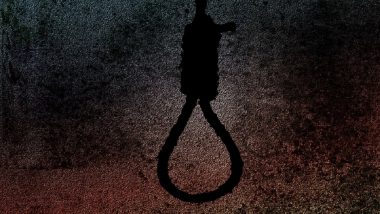Gandhinagar, February 6: The Gujarat government will not enact the 'anti-love jihad' law in the state for some time now as the new law was believed to be legally sustainable. Reports inform that the decision was taken by the state government after legal experts said they were of the opinion that the law might not be legally sustainable. According to a report by TOI, sources said that following the opinion of the experts, the government most likely will not introduce the bill in the budget session of the assembly. The assembly session in Gujarat is slated to begin from March 1. Supreme Court Gives Nod to Examine Validity of 'Love Jihad' Laws in Uttar Pradesh and Uttarakhand, Next Hearing After 4 Weeks.
The 'love jihad’ laws have been enacted by several BJP-ruled states like Uttar Pradesh and Madhya Pradesh. Following this, the Gujarat government also had expressed its resolve to introduce the law. The TOI report states that despite that the Gujarat government already has an anti-conversion law which prohibits conversion from one religion to another by the use of force or allurement or by fraudulent means, the state government wants to enact the 'anti-love jihad' law. Supreme Court Gives Nod to Examine Validity of 'Love Jihad' Laws in Uttar Pradesh and Uttarakhand, Next Hearing After 4 Weeks.
The TOI report further states that the state government had earlier directed concerned departments to legally vet the law enacted by the Uttar Pradesh and Madhya Pradesh state governments. They were asked to view the new law vis-a-vis the anti-conversion law and recommend if there is a need to implement a new law or amend the existing one. Sources told TOI that the state’s experts and the advocate general opined neither a new law nor an amendment might be legally sustainable. The report further states that the legality of similar acts passed by other states have been challenged in the Supreme Court.
The existing law in Gujarat has provision to penalize a person involved in forced conversion under the pretext of love or marriage. The Gujarat Freedom of Religion Act, 2003 mandates that a citizen obtain prior approval from the district authority for conversion. The existing law states that any person found guilty of indulging in forced conversion can face imprisonment up to three years and a fine of up to Rs 50,000. The law states that if the person who has been forced to convert is a minor, a woman or a person belonging to scheduled caste or scheduled tribe, the maximum imprisonment has been fixed at four years and a fine of up to Rs 1 lakh.
(The above story first appeared on LatestLY on Feb 06, 2021 10:07 AM IST. For more news and updates on politics, world, sports, entertainment and lifestyle, log on to our website latestly.com).













 Quickly
Quickly



















